Animal Crossing: New Horizons Review: Come Sail Away With Me
- Animal Crossing's unique brand of chill is stronger than ever
- Beautiful graphics
- Outstanding soundtrack
- Progression that makes you take your time and appreciate island living
- Tool durability is bogus and unfun
- Nintendo's one-island-per-Switch rule is a tradition that needs to go
If you've read or watched anything related to Animal Crossing: New Horizons over the past month, you've probably heard people say that it's a remedy for a world in crisis. Indeed, it almost seems like the launch of Animal Crossing: New Horizons was perfectly timed, giving fans a much-needed escape from the uncertainty and tension of day-to-day living during a pandemic.
The idea that New Horizons is just what the world needed is one that has been repeated constantly over the past several weeks. Why Animal Crossing, though? What makes it so perfect for escaping the stresses of living during days like these when you can find escapism in literally any video game you'll play?
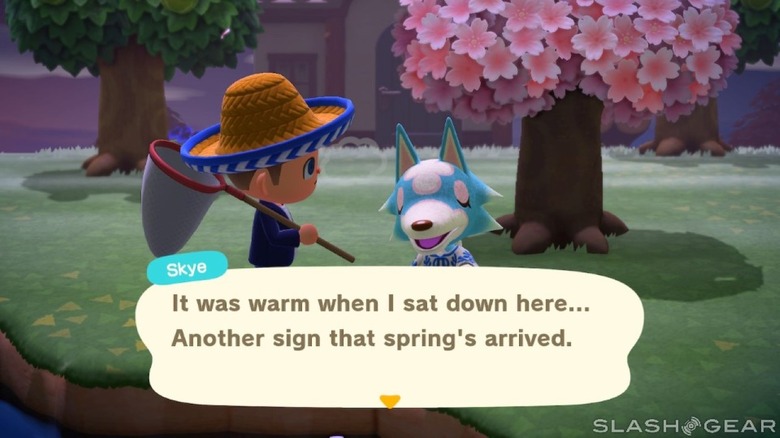
The answer to that question is a complicated one, partly because Animal Crossing has always been a very open-ended game. All players have the same overarching goal when playing New Horizons – create an island town for you and your animal residents – but since there are hundreds of decorative items to pick from, no two islands are going to look alike. Your ideal island and ideal residents are almost certainly going to look vastly different from mine, and that's a wonderful thing.
But regardless of what you want your island to be and regardless of how you get it to that point, one thing that all New Horizons players will be familiar with by the end is Animal Crossing's unique brand of chill.
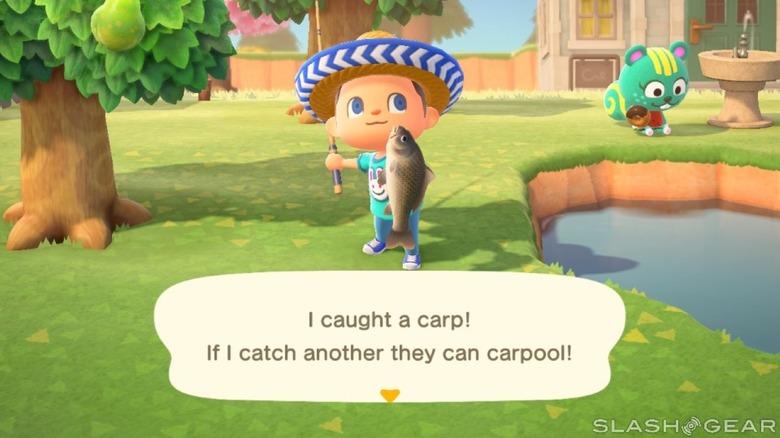
Across the decades I've been playing games, I've never encountered anything quite like Animal Crossing. It's a game that forces you to slow down and take your time. Some of that is by design, as a fair amount of content is gated either by time or by in-game milestones. Even ignoring that, though, the picture of your perfect island isn't going to be something that's complete from the word "go."
Instead, it's an image that forms over time, as you unlock new set pieces and realize the perfect place for them on your island filled with stuff. There's a lot of stuff in Animal Crossing: New Horizons. At its core, New Horizons is about amassing the stuff you like, selling the stuff you don't like, and then arranging your favorite stuff in a way that makes you happy.
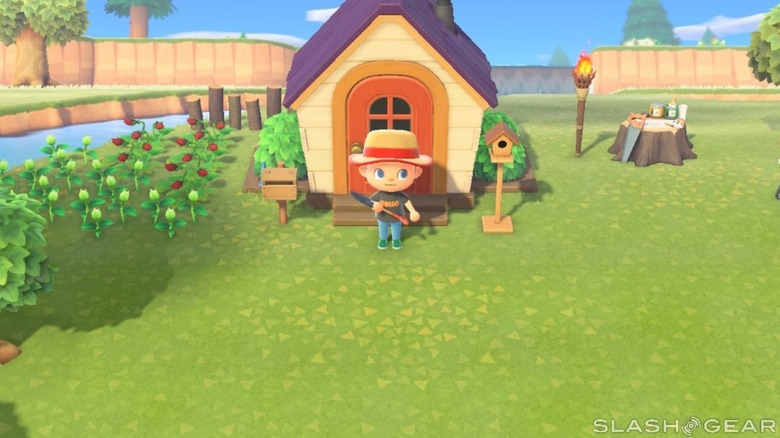
That stuff can vary wildly in Animal Crossing: New Horizons, from piles of discarded tires and fountains made out of seashells to espresso makers and incense burners. The stuff Animal Crossing offers isn't just comprised of items either, but wallpapers and clothes and flooring too. In New Horizons, it isn't even enough to simply decorate your island because you can terraform thit too, adding earthen inclines or creating lakes and waterfalls.
In Animal Crossing: New Horizons, you get to decide how you spend each day on your island, but that doesn't mean there isn't some structure. The main gameplay loop involves contracting Tom Nook to upgrade your house or complete island infrastructure projects and then paying him back through no-interest loans. Then we have the museum, curated by a nice owl named Blathers, which players need to build out by donating the bugs, fish, and fossils they find.
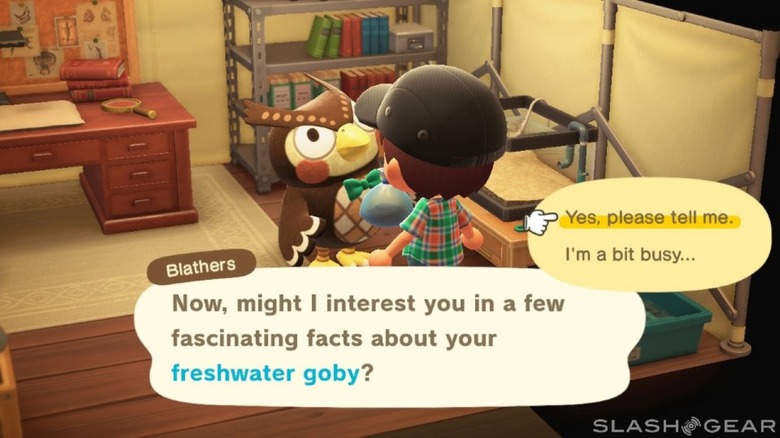
Beyond supporting Tom Nook's monopoly on construction projects and feeding Blathers' obsession with wildlife both past and present, you're more or less free to do your own thing. Animal Crossing: New Horizons is ultimately what you make of it, and I think for some people, that may be a roadblock rather than a selling point.
I love Animal Crossing: New Horzions. I've greatly enjoyed the time that I've spent with it so far and I'm looking forward to continue playing it over the coming weeks and months. However, I need to be clear that I don't think Animal Crossing: New Horizons is a good pick for everyone. I think that's an important thing to note, because in the lead up to release, the insane levels of hype might have inflated the expectations of those who have never played an Animal Crossing game before.
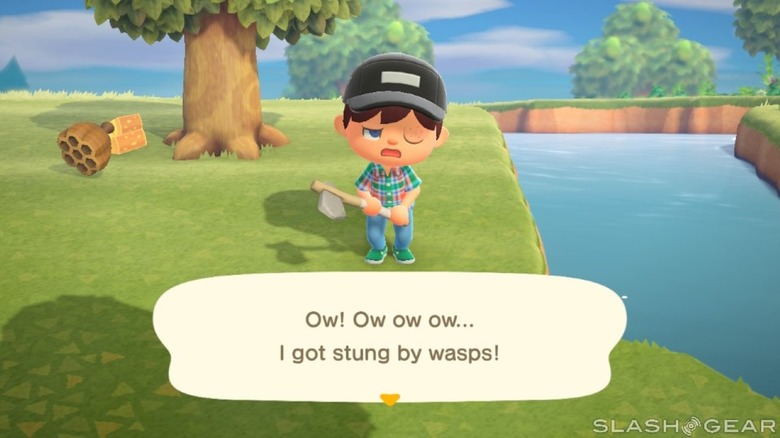
For starters, there is no win or lose condition in this game, so if you like playing games to be challenged, you won't find what you're looking for here. Animal Crossing: New Horizons is a life simulation game that by and large removes the rough parts about day-to-day living and keeps the good parts. About the worst you'll encounter is a sting from wasps or a bite from a spider – even debt that should be crippling is more of a "it'll sort itself out eventually" kind of problem.
As I said previously, New Horizons is a very open-ended game too. You can ask Tom Nook for suggestions about what to do next, but you're never really bound to doing anything you don't want to do. If you want to spend a day on the beach watching for balloons carrying presents to float in from over the ocean, you can do that. You can spend an entire day just visiting deserted islands by redeeming Nook Miles – a new system that rewards you for completing tasks in the game – and seeing what you can uncover there.
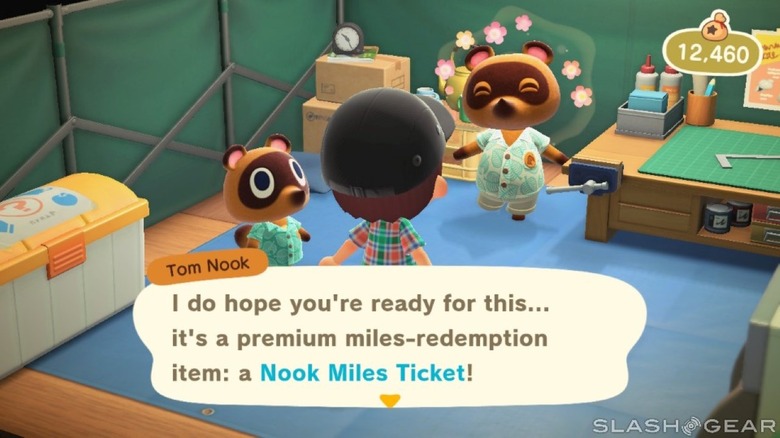
Those who don't care for sandbox games that leave players to mostly make their own fun probably won't find a lot to love here either. If nothing else, it's important to keep in mind that Animal Crossing is fairly unique even among other life sims, so if you're new to the franchise, you might want to spend some time watching livestreams or reading a collection of reviews before you make your buying decision.
If you've enjoyed any other Animal Crossing games, I think this is a very safe buy. Animal Crossing: New Horizons improves on the 3DS's fantastic Animal Crossing: New Leaf in many ways, and I think this could very well be the best game in the series.
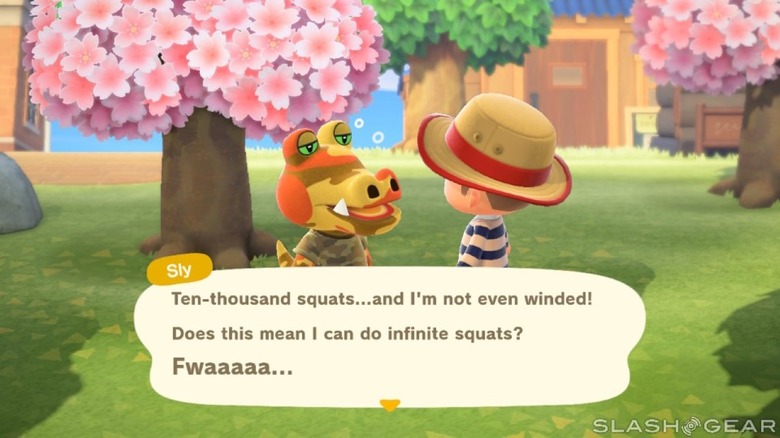
With that said, there are some things that I don't like about New Horizons. The first is the way this game handles multiplayer, specifically as it relates to single Switch households with multiple people who want to play. All players on a single Switch are forced to play on the same island, which means that those who want to have their own island are completely out of luck.
It also means that the first person to boot up the game gets to make some important decisions about the island, specifically its layout. This is a holdover from the early days of Animal Crossing – the first game on GameCube required that all players on the same console share one town, and it's been that way ever since.
"That's the way it's always been" is no excuse for bad game design, and this is bad design. It's an example of Nintendo releasing a vast sandbox game but still attempting to dictate how people play it, and it's nonsense.
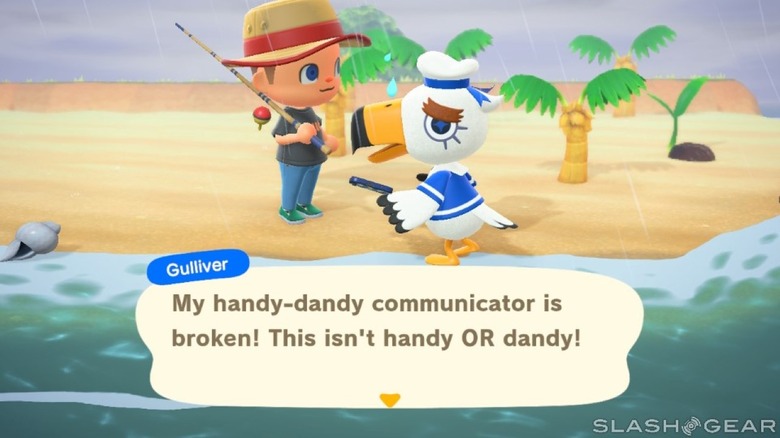
I said this in my first impressions post about Animal Crossing: New Horizons, but for me, one of the main draws of an Animal Crossing game is that I get the chance to make my ideal town, and I think that's something that's true for a lot of people. When you force all local players to play on the same island, though, you take away that appealing aspect for a lot of people. Not all, as I'm sure there are couples and families and roommates who want to share islands, but certainly many.
The solution is a very simple one, too – just give players the choice between joining an existing island that another person created or creating their own. I'm guessing that Nintendo implemented this to prevent players from creating multiple islands and figuring out a way to share items between them, but in a single player game with no competitive aspect, who cares if some people cheat? If that's how they have fun, let them cheat. It's no skin off my back, because what they do on their islands and in their save files has no effect on what I do with mine.
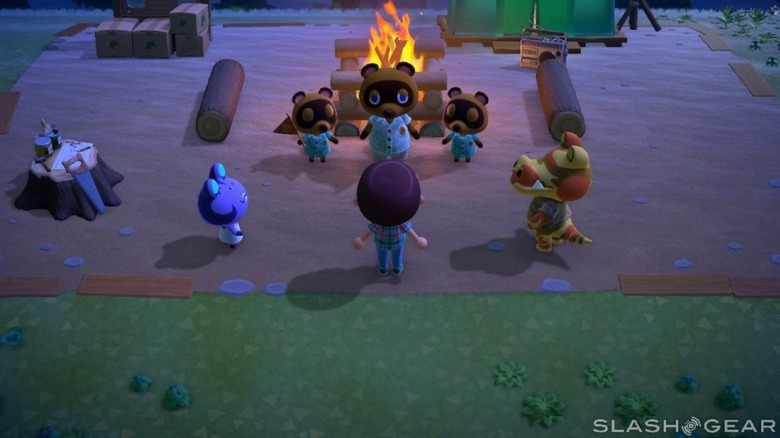
Multiplayer is fun, too, but I wouldn't want my entire experience to be a multiplayer one. I really enjoy visiting friends' islands and seeing what kind of layout they've put together, but doing that has made it abundantly clear that having other people share my island permanently would make the game less fun for me.
I'm just happy that my girlfriend and I each have our own Switches and we can get around this restriction, but I feel bad for other people who may be forced to play together when they each want to make their own islands. I can only hope that Nintendo listens to feedback about this restriction and makes a change later on down the road, but seeing as Nintendo can be very stubborn when it comes to listening to fans, I don't have a lot of confidence that it will.
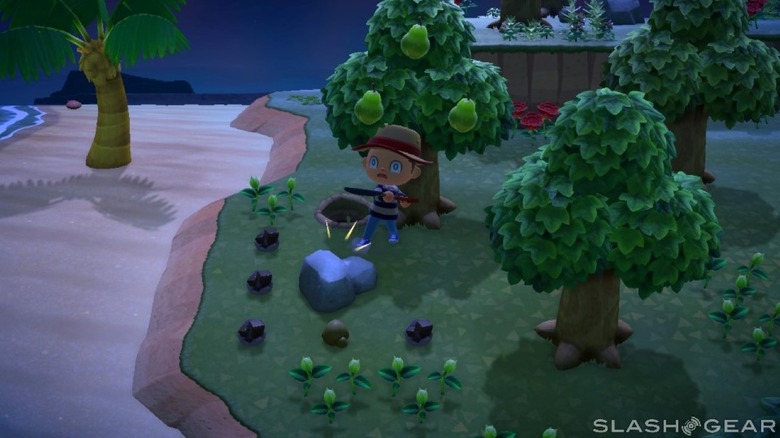
My other complaint is that I don't really like the fact that tools have durability. I understand the desire to keep the flow of resources going and giving players a reason to constantly collect basic resources like wood, stone, and iron outside of making furniture and other items, but having to deal with tools that break is just a drag. When tools break, it's only ever frustrating and never anything else.
Animal Crossing: New Horizons Verdict
The complaints about tool durability are admittedly minor in the grand scheme of things. In the end, I think the issue with local multiplayer is the only major blemish on this game. Aside from that, I'm pleased to confirm that the reports are true: Animal Crossing: New Horizons is the perfect game for these stressful times.
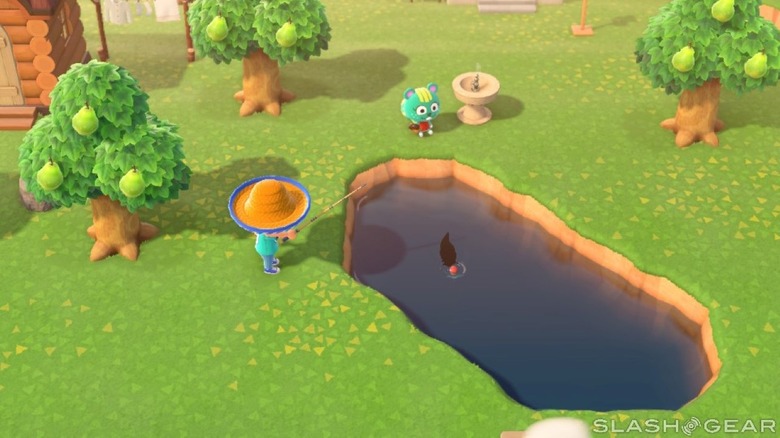
I don't know if I've ever smiled as much playing a video game as I have while playing Animal Crossing: New Horizons. The game is home to so many little moments of joy that it brightens my day being able to play it for just five or ten minutes. I love nearly everything about this game, and it was indeed well worth the wait, even with the delays.
Animal Crossing: New Horizons may not be for everyone, but those who enjoy games like this will find a lot to love. Even if you don't normally go for life simulators, New Horizons may still be worth a look, because Animal Crossing has a certain style that's near impossible to find anywhere else.
